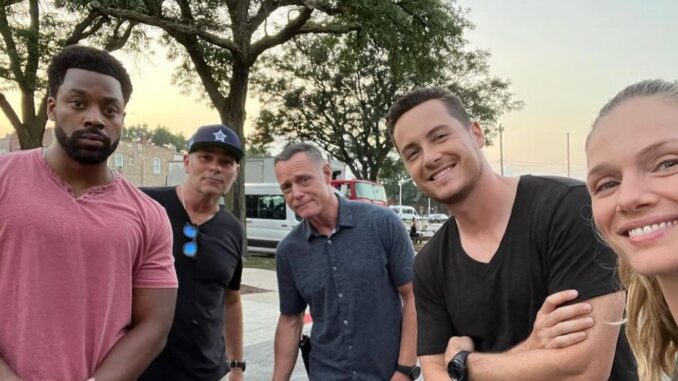
In a time where television shows come and go with little permanence, Chicago P.D. has earned its place as a staple in millions of households. For over a decade, it’s been more than just a cop show—it’s been a reflection of society’s grit, complexity, and humanity. And now, as the series gears up for its return in January 2025, the anticipation feels different. Heavier. More urgent. The return of Chicago P.D. isn’t just another season premiere; it’s a cultural event, a moment that feels like it matters more than ever before.
So why does this particular return hit so hard?
Let’s start with timing. The world, as we know it, has been shifting—socially, politically, and emotionally. Viewers are no longer satisfied with surface-level storytelling. They crave depth, moral ambiguity, characters who wrestle with right and wrong the way we do in real life. And Chicago P.D. has been delivering just that. The show’s evolution from procedural drama to a character-driven exploration of justice and trauma has been nothing short of masterful. And now, with a new season on the horizon, the expectations are sky-high.
This upcoming season, premiering January 8, 2025, isn’t starting on a clean slate—it’s picking up the pieces from a brutal finale. Atwater’s crisis of integrity left fans reeling. Voight’s once unshakable moral compass is visibly deteriorating, and the consequences of his choices are beginning to unravel the very fabric of Intelligence. And then there’s Burgess—back, but clearly changed. Her return isn’t just about survival; it’s about reckoning with what survival cost her.
But it’s not just about the characters. It’s about the silence between the words. The power of what’s left unsaid. Showrunners have hinted that this season will lean heavily into quiet moments—scenes where the weight of a stare, the pause in a sentence, says more than any action sequence ever could. It’s an emotional shift that mirrors the audience’s own desire for realism and vulnerability.
What makes Chicago P.D. so compelling is that it’s not afraid to show its characters breaking. Cracking under the weight of their pasts, their duties, and their failures. It doesn’t glorify law enforcement. It questions it. It pushes its characters—and its viewers—to think about justice not as a black-and-white concept but as a messy, sometimes painful gray area. And in a time where trust in institutions is at a crossroads, that kind of storytelling isn’t just important—it’s necessary.

The writing is expected to be tighter. The arcs more layered. The conflicts less about chasing criminals and more about confronting the ones within. We’re talking about deep dives into trauma, loyalty, and redemption. The Intelligence Unit, once seen as an unstoppable force, is now more vulnerable than ever. And that vulnerability? That’s where the magic happens.
Fans are especially curious about how Voight will handle the changing dynamics in his team. For years, he was the anchor—firm, fearless, often morally questionable, but always sure of himself. Now, there’s uncertainty in his eyes. Age, regret, and the ghosts of his decisions are catching up to him. Will this season be his reckoning? Or will it be the beginning of something even darker?
And what about Atwater? His internal conflict is no longer about fitting in—it’s about standing up. After seasons of being overlooked, his voice is louder, his stance clearer. This season may very well be the one where he steps into a leadership role, not because he wants it, but because the team needs it. Desperately.
Burgess’s storyline is another emotional focal point. Her trauma isn’t being brushed aside or minimized. It’s being given space to breathe, to unravel, and hopefully, to heal. Her return to Intelligence isn’t just a plot device; it’s a statement. She’s not just back. She’s reclaiming her place—on her own terms.
All of this comes at a time when television itself is being redefined. Audiences are savvier, more emotionally invested, and more critical. They want shows that reflect the complexity of real life—not just explosions and chase scenes, but emotional truth. And that’s where Chicago P.D. thrives. The series has grown with its viewers, tackling issues like systemic injustice, mental health, corruption, and loyalty with a maturity rarely seen in network television.
And let’s not forget the ensemble cast, whose performances have been the heart of the show. From LaRoyce Hawkins’ grounded portrayal of Atwater to Jason Beghe’s emotionally raw Voight, the actors have consistently delivered performances that linger long after the credits roll. With the return looming, fans can expect even more nuanced performances—ones that pull us deeper into the lives of characters we’ve come to see as more than just fictional.
Ultimately, the return of Chicago P.D. feels important because the show has earned our emotional investment. It doesn’t insult its audience. It challenges us. It gives us characters who are flawed, scared, and brave all at once. Characters who reflect who we are and who we wish we could be.
